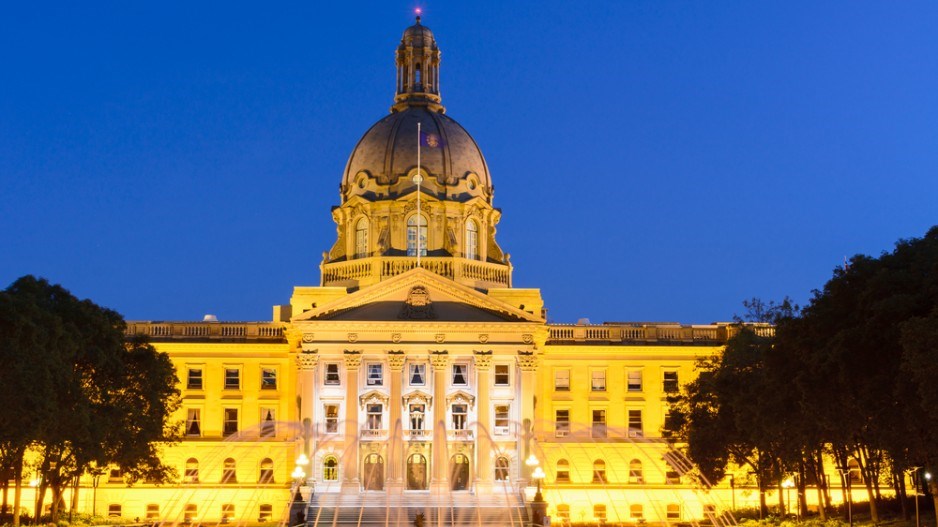As Albertans head to the final weeks of the provincial electoral campaign, the mood of voters is different than in past democratic processes.
In the most recent Research Co. survey, two findings are particularly striking: the lack of an established frontrunner when people are asked who would make the best head of government, and a high proportion of undecided voters, particularly in rural areas.
The 2015 ballot was all about change. Rachel Notley commanded the Alberta New Democratic Party (NDP) to victory in an election that was called early to capitalize on a supposedly fractured opposition. As Albertans headed to the polling stations, Notley was decidedly seen as the best person who was running for premier.
Four years later, and with the emergence of the United Conservative Party (UCP), Notley’s numbers have suffered. Across the province, 45% of residents approve of her performance as Premier and leader of the NDP, while 46% disapprove.
There is a significant gap in the level of strong approval for the incumbent head of government (18%) and strong disapproval (30%), but Notley’s standing with voters who supported the New Democrats four years ago is solid (77%).
In the 2016 provincial election in Manitoba, an opposition leader seized on the perceived failings of sitting government. Brian Pallister outranked an incumbent premier on approval as the campaign got underway, and stayed there until all ballots were counted.
This is not the case in Alberta. UCP leader Jason Kenney is a polarizing figure. Just under two in five Albertans (38%) approve of the way he has handled his duties as leader, while almost half (47%) disapprove.
Kenney’s disapproval rating is highest among Albertans aged 55 and over (53%). In addition, about one in four voters who cast a ballot for the Wildrose Party and the Progressive Conservatives in 2015 (25% and 26% respectively) disapprove of his performance.
The campaign has not been extraordinarily pleasant for the leaders. All have negative momentum scores, but Kenney has fared worse. Almost two in five Albertans (38%) say their opinion of the UCP leader has worsened since the writ was dropped. For Notley, this number stands at 30%.
When Albertans are asked who would make the best premier of the province, the two main leaders are tied, with 32% of residents picking Notley and 32% selecting Kenney. Stephen Mandel of the Alberta Party and David Khan of the Liberal Party are way behind (7% and 5% respectively), and one in four prospective voters (24%) are undecided.
More than one in five Albertans (22%) are not sure which party they will support this month. Among decided voters, the UCP has a five-point edge over the NDP (45% to 40%), with the remaining 15% of voters supporting the Alberta Party, the Liberal Party or other contenders.
As expected, the NDP leads in its stronghold of Edmonton, while the UCP is narrowly ahead in Calgary. But in the rest of the province, the numbers can still swing. Outside of the two main urban centres, the UCP has a comfortable lead but the level of undecided voters is 27%. There are many rural residents who are still assessing their choices.
In spite of the tie on the “best premier” question and the excessive number of undecided voters, the two main leaders are connecting well with their bases. Albertans think Notley is the superior politician to deal with health care, child care, seniors care, housing, poverty and homelessness, the environment and education. Kenney is ahead on the economy, job creation, crime and public safety, energy and pipelines and managing finances. There is no clear winner on handling transportation projects or fostering government accountability
By far, the most important issue for Albertans is the economy and jobs (44%, including 52% among residents aged 35 to 54), followed by health care (14%), energy and pipelines (13%) and government accountability (9%).
In the survey, 62% of decided voters in Alberta say they are certain that they will not change their minds before the election takes place. This leaves almost two in five (38%) who may switch depending on what the final days of the campaign bring.
While those who are currently backing either of the two main parties are not likely to move (80% of NDP voters and 76% of UCP voters say they will not waver), there are 40% of Alberta Party voters and 50% of Liberal Party voters who may switch. These voters could end up defining the next government. If strategic voting plays a role in the final stages of the campaign, the 2019 election may become less about ideology and more about who Albertans are comfortable with as premier.
Mario Canseco is president of Research Co.
Results are based on an online study conducted from March 29 to April 1, 2019, among 600 adults in Alberta. The data has been statistically weighted according to Canadian census figures for age, gender and region in Alberta. The margin of error, which measures sample variability, is plus or minus four percentage points, 19 times out of 20.




